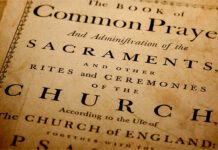I don’t want to take sides. I don’t want to stir up controversy. I don’t want to weigh in ‘just because…’
But I think it’s worth saying that religious liberties are nothing to sneer at or treat lightly. I get the disdain for culture wars. Decades of trying to achieve religious agendas through contentious public discourse have left a bad taste for any Christian dialogue in the public square. I get it.
I believe deeply and try to live out the “Jesus Way”—the quieter, counter-cultural ethic that only makes sense if we believe in a God who raises the dead. I have been shaped by Hauerwas and his imagination of the Church as an alternate society. I think embodying the Gospel is the Church’s mission, not boycotting culture. I don’t even think we need to “take a stand for Jesus.”
I get it. I understand where my peers—and dare I say now, the younger generation emerging behind me—are coming from.
But…religious freedoms are precious. Can the Gospel thrive without them? Certainly. And it has. But let us not be quick to overlook how much the Gospel has been helped (insert the *) by political conditions that were favourable to its spread—from Constantine’s edict to Luther’s “godly princes”. Do I think this was all a good thing? Certainly not. I am not ignorant of the dangers of a ‘civil religion’, and the confusion that ensues when a Christian identity is confused with a national one. I had my church history classes in seminary where we had to grapple with the good, the bad, and the downright ugly parts of the relationship between church and state in Western Christianity.
And yet…we must not dismiss religious freedom as a trivial thing.
God does not work in a social or political vacuum. God works from within. There have been times when the prophetic voice challenges the Empire (see: Moses), and there are times when the prophetic voice speaks within it (see: Joseph in Egypt and Daniel in Babylon). Paul seemed adept at using both approaches, challenging Agrippa and ripping Caesar language from Rome and applying it to Jesus (‘savior’, ‘lord’, ‘freedom’, ‘peace’, ‘son of God’, ‘salvation’, and more)…yet also claiming his Roman citizenship where it gave an advantage to his proclamation of the Gospel.
So we must work from where we are. And where we are is America—a place that has a rich history of religious freedom (even though it is not absolute). America is a place where citizens have a voice. Much more can be said—and has been said by those more learned than I—about a “political theology” for public engagement, and how to use this “voice”, so I’ll leave it to them.
I’m simply weighing in to ask us to take seriously the value of religious freedoms…to look honestly at how God can and has used it for His purposes…and to not dismiss those who are working kindly and carefully within the privileges of American politics and culture to preserve these freedoms.
And why do I care? Because I came to America from a country that doesn’t have these freedoms. No, I wasn’t persecuted. Yes, there are large churches and thriving Christian ministries in Malaysia. Nevertheless, in Malaysia there is religious toleration but not religious freedom. And there is a difference. I know my brothers and sisters in Christ in Malaysia are working to change this, for the common good.
We dishonor their efforts by treating our freedom here too lightly. We may—and I’m not sure about this, but it’s worth considering—even be cheapening the plight of persecuted Christians around the world by pretending that theirs is not such a great cost to bear. We trivialize their suffering when we treat the freedom to practice our faith in Christ as a “take it or leave it” proposition. Let’s not do that. Hear it from one who came here by choice; one who is grateful to be an American citizen; and one who is giving his life to make the most of these freedoms for the glory of God and for the good of others. And though I wear this citizenship lightly, I wear it gratefully.
May it be so for us.











